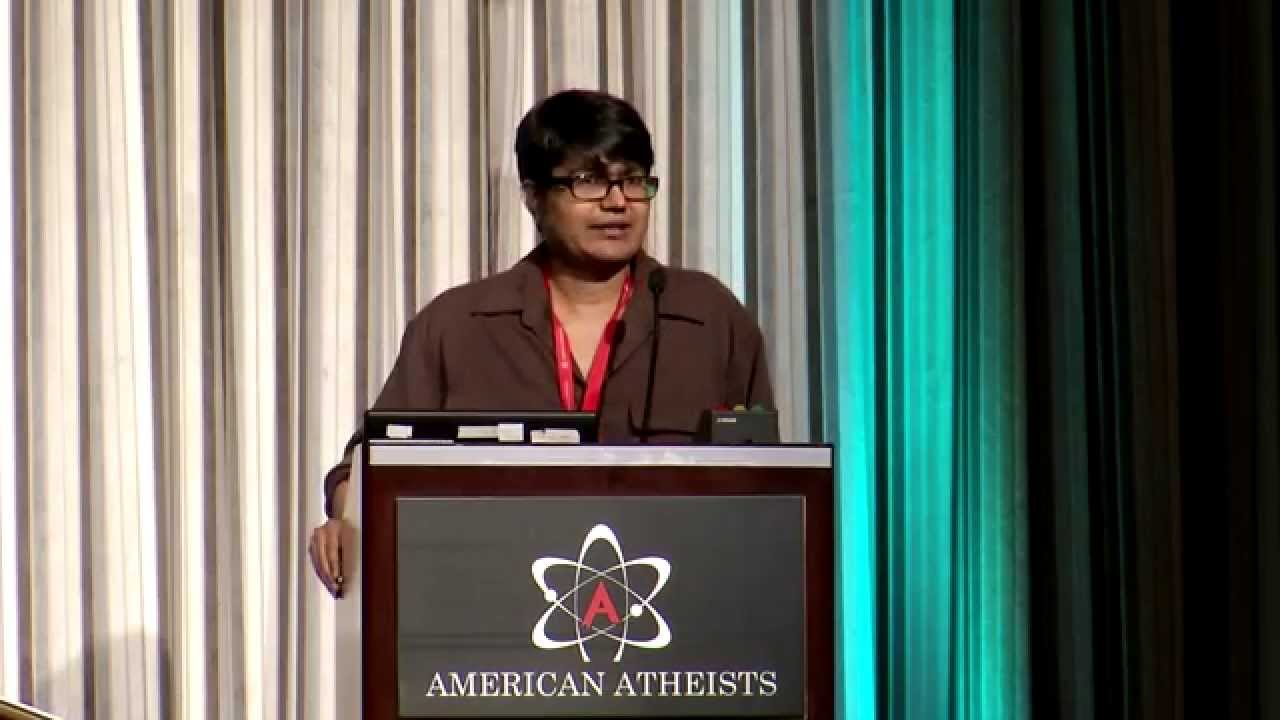By Hassan Radwan
Islam – my religion – is facing the most serious crisis of its 1400 year history. Extremists like ISIS only serve to bring this crisis to a head, but it has been growing over the last 200 years. Yet despite this, we refuse to accept there is need for reform or even to engage in a conversation about it.
The past 200 years have seen some of the greatest changes in human history. Changes in relationships, gender roles, law and order, morality and ethics. Changes in the way we understand the natural world and the processes that drive it. Changes in the way we organise our lives in the pluralistic, multi-faith, multi-ethnic societies we now live in.
But when it comes to the understanding of our religion we have stood still. We cling to a literalist mentality that looks back 1400 years to 7th century Arabia as the perfect model for us to imitate in the 21st century. We either ignore the changes or condemn them as iniquitous innovations. We refuse to accept that religion needs to change or evolve. Any apparent flaws are our own inadequacies and misunderstandings. We keep repeating, ‘If only the Qur’an was followed “properly” it would lead to peace and happiness for all mankind.’
Groups like ISIS are of course an inconvenient aberration, but there have been no shortages of such inconvenient aberrations in our recent history.
Reformers — or rather renewers (mujaddideen) — have only repeated the call to return to a “true, pure and unadulterated” Islam of the Qur’an and Sunna. Their “reforms” have been about halting change and erasing innovation rather than welcoming them.
We are trapped like helpless spectators watching our religion being destroyed by fundamentalists, unable to lift a finger to save it, because we refuse to admit there is a problem. Instead we play the denial, anger and blame game. We deny there is anything wrong, we become angry at the slightest criticism and we blame others, especially the West, for provoking and creating our problems.
We keep repeating the line that the actions of ISIS, al-Qaeda, Boko Haram, al-Shabab and so on, ‘have nothing to do with Islam’ and we quote the verse: “Whoever kills a soul unjustly it is as if he had slain mankind entirely” (5:32), insisting it is proof that their acts of are ‘completely against Islam!’
Yet the groups who commit these crimes in the name of Islam don’t think they are ‘completely against Islam.’ They have their own interpretations and also quote Qur’anic verses such as: “Kill the idolaters wherever you find them” (9:5). Of course we protest in anger that they are taking the verse out of context. We accuse them of being myopic and selective in how they interpret Islam. That’s true; they are. But what we forget to mention is — so are we! We also selectively quote verses that suit our peaceful view of Islam. We also take verses out of context when it suits us.
It’s time for us to be honest and admit that things are not as obvious and clear cut as we claim they are. The reality is that Islam has always been a multitude of interpretations, views, schools of thought, groups, parties and sects. All of them draw on the holy texts and regard their interpretation as correct and valid. Who is right and wrong is a matter of opinion and not a matter of undeniable fact as we like to argue.

Literalist traditions as well as mystical traditions, progressive traditions as well as conservative ones — each chooses to see what they want to see and interpret verses in a way to suit them. Denying that ISIS has anything to do with Islam will not help us in the long run, because it just means we avoid facing up to, and tackling, the aspects of Islam that give rise to the views of ISIS.
There is an elephant in the room we are trying our hardest to ignore. But this reluctance to face up to painful questions and tackle them head on means our crisis will simply continue, as will the meaningless platitudes and sound bites about Islam being a ‘religion of peace’ that are increasingly only met by derision and mockery by both Muslims and non-Muslims.
The first and most essential step towards solving this crisis is a seemingly simple one. It is to have an open and frank conversation that allows ordinary Muslims to express their doubts, dissent and criticism. A conversation that doesn’t gloss over difficult issues and controversial aspects, but allows us to examine them honestly and courageously, that allows us to question the nature of revelation and present the case for change and reform. Unfortunately this has proven to be an impossible conversation for us to have so far. Not only have we failed to have this conversation we are actively suppressing and silencing all who dare raise their voice.
Take the case of Salman Taseer, the governor of Punjab in Pakistan. Not only was he assassinated by his own bodyguard for calling for a reform of Pakistan’s blasphemy laws, but the murderer, Mumtaz Qadri, has been hailed as a hero and martyr by many Muslims. Tens of thousands turned out for his funeral in Pakistan. Perhaps even more shocking is that even here in the UK many Muslims have been praising him — including Imams of some UK mosques.
From Saudi Arabia to Bangladesh, from Iran to Egypt and even in Europe itself, Muslim liberals, bloggers, intellectuals, freethinkers and human rights activists are silenced, threatened, attacked, imprisoned and murdered for simply trying to have an open and honest conversation about Islam.

There are also many more ordinary Muslims who don’t make the headlines who question traditional aspects of Islam but are frightened into silence. Or they are labelled apostates by the self appointed guardians of the faith. Many feel they have no choice but to accept the literalist accusations of apostasy and leave Islam rather than staying to challenge them from within.
Even if they did there is no forum where this conversation is allowed to take place. Go to any mainstream mosque, Islamic circle or public meeting and you will soon be silenced, ejected or banned if you dare raise the subject of reforming Islam, or claim that some verses are redundant in this day and age.
I remember an incident when I was a teacher at Islamia Primary School in North West London. I was sitting in the staff room with six female teachers and the conversation turned to women in Islam. Some of the verses discussed were verse 4:34, which allows — in certain circumstances — a husband to hit his wife as a corrective measure, and 2:282, which classes a woman’s testimony as half that of a man’s.
I questioned the validity of such verses in the 21st century but was met with a chorus of Astaghfirullah (I seek forgiveness from Allah) and Aoothubillah (I seek refuge with God) from everyone in the room and then treated to a stern lecture by a Salafi sister. The remaining five teachers sat in silence, bowing their heads as she spoke, only breaking their silence with pious phrases of support, such as Ma-sha’allah (whatever God wills) or Subhanallah (glory be to God). I knew that no matter how the others personally felt, they would neither dare to question nor challenge her. The reason is because all discussions about Islam must revolve around daleel (evidence) from the Qur’an and Sunna. Reason and opinion play no part.
If the evidence from the Qur’an and Sunna support the conclusion then it is correct no matter how irrational or unjust it may appear. If we cannot see the divine wisdom in it, then it is our fault, our shortsightedness. We are inadequate and flawed. All those present knew that these are the rules of the game and they knew the traditional evidence from the Qur’an and Sunna supported the Salafi sister.
I tried to respond in a way that would engage her heart and mind but, as with so many times when I’ve attempted to have a frank conversation, it quickly turned into an ultimatum: “Either you accept Islam or you don’t.”
However, later that day, two of the sisters who had been present at the discussion came up to me – quite independently of each other – and said in hushed tones, glancing from side to side, that they agreed with me and thanked me for speaking up.
Nor was this an isolated incident. I often witnessed Muslims who would remain silent and unquestioning when in the company of other Muslims, but who would express their reservations in private — and even then only because they knew I would be sympathetic.
The fact is that Muslim communities are ready to have this conversation. But not only are the Imams, sheikhs and self-appointed guardians of Islam doing their utmost to suppress it, we ourselves are too afraid to open up and trust ourselves. We fear it will mean losing our faith and identity as Muslims. But it won’t.
I have been through this process myself and, though it was painful, my faith is better and stronger for having faced up to the questions and doubts that troubled me. Having an open and honest discussion is how you solve problems. It’s what grown-ups do. Suppressing our thoughts and feelings is how to make the problems worse.
Yes, you can still be a Muslim and question or reject some aspects of Islam. Yes you can still be a Muslim and use your own reason, feelings and conscience to decide what’s right and wrong — even if it does contradict Qur’an. Don’t let others call you a “bad Muslim” or an “apostate”, nor let them drive you out of Islam. We need to be part of this conversation and not allow the regressive and reactionary forces among us to monopolise it.
A good Muslim should be a good human being — period! We are charged with using the heart and mind God gave us. Let us take that which is good from our heritage and leave that which is not. Let’s have this conversation and let’s take Islam back from the extremists and fundamentalists.



The issue is that Muslims are dependent on the traditional interpretations that are supported by Hadith. Even modern scholars focusing on a feminist interpretation are stymied by Hadith. Take away the Hadith and the Seerah and interpret the Quran on its own terms alone and there won’t be any confliction with modern ethics and morality.
There is no wife-beating in Islam in as much as there is no hand-cutting or stoning. Ensuring the rights of every single creation is fundamental to a righteous Muslim.
We need to take back the Quran – wrest it away from centuries of cultural and traditional biases.